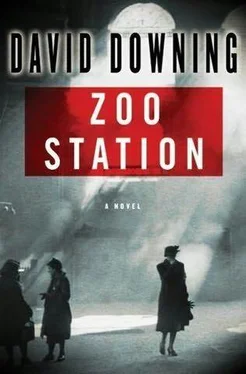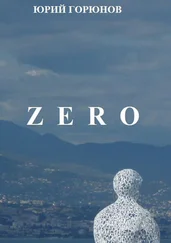David Downing - Zero Station
Здесь есть возможность читать онлайн «David Downing - Zero Station» весь текст электронной книги совершенно бесплатно (целиком полную версию без сокращений). В некоторых случаях можно слушать аудио, скачать через торрент в формате fb2 и присутствует краткое содержание. Жанр: Шпионский детектив, на английском языке. Описание произведения, (предисловие) а так же отзывы посетителей доступны на портале библиотеки ЛибКат.
- Название:Zero Station
- Автор:
- Жанр:
- Год:неизвестен
- ISBN:нет данных
- Рейтинг книги:5 / 5. Голосов: 1
-
Избранное:Добавить в избранное
- Отзывы:
-
Ваша оценка:
- 100
- 1
- 2
- 3
- 4
- 5
Zero Station: краткое содержание, описание и аннотация
Предлагаем к чтению аннотацию, описание, краткое содержание или предисловие (зависит от того, что написал сам автор книги «Zero Station»). Если вы не нашли необходимую информацию о книге — напишите в комментариях, мы постараемся отыскать её.
Zero Station — читать онлайн бесплатно полную книгу (весь текст) целиком
Ниже представлен текст книги, разбитый по страницам. Система сохранения места последней прочитанной страницы, позволяет с удобством читать онлайн бесплатно книгу «Zero Station», без необходимости каждый раз заново искать на чём Вы остановились. Поставьте закладку, и сможете в любой момент перейти на страницу, на которой закончили чтение.
Интервал:
Закладка:
Dr. Wiesner appeared after a few minutes, looking decidedly harassed. His wife and two daughters abruptly withdrew to the next room and closed the door behind them.
He was about fifty, Russell guessed, and aging fast. He ran a hand through his thinning hair and got straight down to business-as Conway had said, he hoped to get his daughters away to relations in England. He was working on getting them visas and exit permits, and in the meantime he wanted them to learn English. “I speak a little,” he said in that language, “and I will try and help them, but they need a proper teacher.”
“I have taught around twenty German children,” Russell said.
Wiesner grunted. “German children,” he repeated. “I’m afraid my children are no longer considered German.”
Russell said nothing.
“You are wondering why we stayed,” Wiesner said. “I ask myself the same thing every day and I have many answers, but none of them is worth anything. My wife is not Jewish,” he added, “so my children are only half-Jewish, or mischlings as the Nazis call them, but I thought perhaps… Well, I was a fool.” He reached behind himself and plucked a piece of paper from a shelf-full of music. It was, of all things, a page of Der Stьrmer. “Listen to this,” the doctor said, adjusting his glasses on his nose and holding the page almost at arm’s length. “‘Even if a Jew slept with an Aryan woman once, the membranes of her vagina would be so impregnated with alien semen that the woman would never again be able to bear pure blooded Aryans.’” He lowered the paper and looked at Russell. “Who could believe such pre-scientific nonsense? It doesn’t even make sense on their own illiterate terms-surely the master race would have the all-powerful blood, not the people they despise.” He saw something in Russell’s face. “I’m sorry. I don’t know why I am telling you all this. It’s just so hard to accept.”
“I understand,” Russell said.
“So why do you, an Englishman, stay in Germany?” Wiesner asked him.
Russell gave a short account of his situation.
“That is difficult,” the doctor agreed. “But good news for my daughters if you agree to teach them.”
“How many lessons do you have in mind?”
“As many as you can manage. And as often.”
“Three times a week? Monday, Wednesday, Friday? It’ll vary a bit. I can’t do Friday this week, but I could do Thursday.”
“Whatever you say. Now for the difficult part. I have some money, but not very much. And-here I must trust you-I have some valuable stamps. I can show you the valuation in the current catalogue and add another ten percent.”
It was a nice idea, but Russell couldn’t do it. “The catalogue value will suit me fine.”
It was almost dark when he emerged from the Wiesners’ block, and the tram rides home through the evening rush hour seemed endless. By the time he reached Hallesches Tor he was ready for supper, and his favourite beerhouse beneath the elevated U-bahn provided the necessary meatballs and potato pancakes. Over a second beer he decided not to sell any of Wiesner’s stamps unless he really needed to. He would give them to Paul, whose collection could do with some rarities.
That was assuming his son would accept them. Paul was forever worrying about his father’s financial state-an anxiety which Russell occasionally, and without much conviction, tried to blame on his ex-wife Ilse.
He looked at his watch: He didn’t have long to ring Paul before his bedtime. A U-bahn rattled into the station above as he emerged from the beerhouse, and a stream of people were soon pouring down the iron staircase, exhaling thick puffs of breath in the cold evening air. It was one of those Berlin days when the weather seemed uncertain what to do, one minute veering toward a western warmth, the next favoring an eastern chill.
Entering his street, he noticed what looked like an empty car parked across from his apartment block. This was unusual-very few people in the area could afford one. He thought about crossing the street to take a look inside but decided he was being paranoid. He hadn’t done anything to upset the authorities. Not yet, anyway.
A blast of hot air greeted him as he opened the outside doors of the apartment block. Frau Heidegger’s skat evening was in full swing, the volume of laughter suggesting a large consignment of empty bottles for the morning collection. Russell dialed the number of the house in Grunewald, put the earpiece to one ear and a finger in the other. As he half-expected, Ilse picked up. They asked each other the usual questions, gave the usual answers, all with the faint awkwardness which they never seemed able to shake. The family had just gotten back from Hanover, and when Paul came on he was full of the wonders of the autobahn and his stepfather’s new Horch 830 Bl. As far as Saturday was concerned, his usual school lessons had been replaced by Jungvolk meetings, and these ran until one o’clock. “Muti says you can pick me up then.”
“Right.” Effi would be pleased, Russell thought. He wouldn’t have to leave while she was still fast asleep.
“And we’re still going to the Viktoria match?”
“Of course. I expect Uncle Thomas and Joachim will come too.”
They chatted for another couple of minutes, before Ilse’s voice in the background decreed that time was up. Russell said good night and, feeling the usual mixture of elation and frustration, started up the stairs.
He was waylaid on the third floor landing by the other resident journalist in the building, a young American named Tyler McKinley. “I thought I heard your weary tread,” the American said in English. “Come in for a minute. I want to ask you something.”
It seemed simpler to say yes than no. McKinley’s room wasn’t particularly warm-like the other residents he knew that skat night was a chance to freshen the air-but it was full of pipe-smoke from the atrocious Balkan mixture he had adopted during a weekend trip to Trieste.
“How was Danzig?” his host asked, though Russell could see he was bursting with stuff of his own to talk about. There was something lovable about McKinley, but also something profoundly irritating. Russell hoped that this wasn’t just because McKinley, with his quasi-religious belief in crusading journalism, reminded him of himself in long-gone days. That was the trouble with the young-their stupidities brought back one’s own.
“Interesting,” he answered, though it had been anything but in the way that McKinley meant. He considered telling him about the stamp wars, but could imagine the look of incomprehension and vague derision which that would elicit.
The younger man was already back in Berlin. “I’m chasing a really interesting story,” he said. “I don’t want to say anything yet,” he hastened to add, “but… do you know anything about the KdF, the Kanzlei des Fьhrers?”
“It’s the great man’s private chancellery.”
“Is it a government office?”
“No, it’s a Party office, but an independent one. There’s no connection to Bormann’s bunch in Munich.”
McKinley looked excited. “So who is it connected to?”
Russell shrugged. “Nobody. It reports directly to Hitler as far as I know.”
“So if he wanted to do something on the quiet, it would be the ideal instrument.”
“Uh-huh.”
McKinley beamed, as if he’d just awarded himself a gold star.
“You want to tell me what you’re talking about?” Russell asked, interested in spite of himself.
“Not yet,” the American said, but he couldn’t resist one more question. “Does the name Knauer mean anything to you?”
“A fullback with Tennis Borussia a few years back?”
“What? Oh, a soccer player. No, I don’t think so.” He reached for a lighter to re-start his pipe. “But thanks for your help.”
Читать дальшеИнтервал:
Закладка:
Похожие книги на «Zero Station»
Представляем Вашему вниманию похожие книги на «Zero Station» списком для выбора. Мы отобрали схожую по названию и смыслу литературу в надежде предоставить читателям больше вариантов отыскать новые, интересные, ещё непрочитанные произведения.
Обсуждение, отзывы о книге «Zero Station» и просто собственные мнения читателей. Оставьте ваши комментарии, напишите, что Вы думаете о произведении, его смысле или главных героях. Укажите что конкретно понравилось, а что нет, и почему Вы так считаете.












